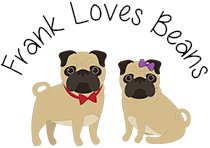
Understanding and Dealing with Pug Bowel Incontinence
What is Pug Bowel Incontinence?
Bowel incontinence in dogs is a condition where they lose control of their bowel movements and can’t hold it in. It’s a common issue that affects many breeds, including Pugs.
Specifically for Pugs, this condition is more prevalent due to their unique physical characteristics. Their short, squat bodies and compressed spines can put pressure on their rectal area, causing issues with bowel control. Additionally, Pugs are prone to certain health conditions like spinal problems and obesity, which can further contribute to bowel incontinence.
What Causes Pug Bowel Incontinence?
One of the primary factors that can cause Pug bowel incontinence is genetics and breed predisposition. As we know, Pugs have a unique body structure and are more prone to certain health issues, including spinal problems and obesity. These factors can contribute to bowel incontinence.
Neurological disorders can also be a potential cause of Pug bowel incontinence. Nerve damage or other neurological issues can affect a dog’s ability to control their bowel movements, which can be a particular concern for Pugs who are already at a higher risk for spinal problems.
Trauma and injury can also lead to bowel incontinence in Pugs. If a dog experiences an injury to their back or pelvis, for example, it can affect the nerves and muscles in the area and make it difficult to control bowel movements.
As dogs age, they may also experience bowel incontinence as part of the natural aging process. Senior dogs may develop health issues like arthritis or cognitive dysfunction, which can make it harder for them to control their bowel movements.
Diet and food allergies can be a contributing factor to Pug bowel incontinence. If a dog is experiencing digestive issues or has an allergy or sensitivity to certain foods, it can lead to loose stools or diarrhea and make it harder for them to hold it in.
What are the Symptoms of Pug Bowel Incontinence?
The most obvious symptom of Pug bowel incontinence is frequent accidents and an inability to control bowel movements. You may notice that your Pug is having accidents in the house or outside of their designated potty area, even if they’re already house-trained.
Straining and difficulty in defecation can also be a symptom of Pug bowel incontinence. Your Pug may seem like they’re having trouble going to the bathroom or may spend a long time trying to defecate without success. This can be a sign that there’s an issue with their bowel control, and it’s worth consulting with your vet to determine the underlying cause.
Fecal staining and odor are also common symptoms of Pug bowel incontinence. You may notice that your Pug has fecal matter on their fur or around their anal area, which can be accompanied by a strong odor. This can be uncomfortable and embarrassing for your Pug, so it’s important to address the issue as soon as possible.
You may notice your Pug licking or biting around their anal area. This can be a sign of discomfort or irritation, and may be a result of the fecal staining or odor mentioned above. If you notice your Pug doing this, it’s worth consulting with your vet to determine the underlying cause and develop a treatment plan.
How is Pug Bowel Incontinence Diagnosed?
Pug Bowel Incontinence is usually diagnosed with a physical examination and a review of their medical history.
Your vet may also recommend diagnostic tests such as bloodwork, urinalysis, and fecal analysis to help identify any underlying health issues. Additionally, imaging tests like X-rays and ultrasounds may be used to check for abnormalities in the digestive tract or organs. If your vet suspects a neurological issue may be causing the bowel incontinence, they may also perform a neurological assessment to evaluate your Pug’s nervous system.
What are the Treatment Options for Pug Bowel Incontinence?
Treating Pug bowel incontinence depends on the underlying cause and severity of the condition. Medications such as anti-inflammatories, antibiotics, and laxatives may be prescribed to manage symptoms and treat infections. Dietary changes and supplements can also be helpful in regulating bowel movements and improving overall digestive health. In some cases, physical therapy and exercise may be recommended to strengthen the muscles in the pelvic area and improve bowel control. For severe cases, surgery may be necessary to correct anatomical abnormalities or damage to the nervous system. For chronic cases, management and coping strategies such as using diapers or training pads can help maintain cleanliness and prevent accidents.
With the right treatment plan, Pugs with bowel incontinence can lead happy and healthy lives.
How to Prevent Pug Bowel Incontinence?
While not all cases of Pug bowel incontinence can be prevented, there are some steps you can take to help reduce the risk of your furry friend developing the condition. One of the most important things is to provide your Pug with proper nutrition and hydration. Feeding them a healthy and balanced diet and ensuring they have access to plenty of fresh water can help keep their digestive system functioning properly.
Regular exercise and mental stimulation can also help keep your Pug in good health and reduce the risk of underlying health issues that could lead to bowel incontinence. It’s also important to promptly address any medical conditions that arise, as untreated issues can worsen over time and lead to more serious problems. Finally, make sure to take your Pug to regular veterinary check-ups and screenings to catch any health issues early and get them the treatment they need. By taking these steps, you can help keep your Pug healthy and happy for years to come.
When Should You Consult a Veterinarian?
If you suspect that your Pug may be suffering from bowel incontinence, you should seek the advice of a qualified veterinarian.
While some cases of incontinence may be manageable with changes in diet or medication, others may require more extensive treatment, such as surgery or physical therapy. Additionally, if you notice any signs of worsening symptoms or new complications, such as blood in the stool or difficulty urinating, it’s important to seek medical attention right away.
If you’re having difficulty managing your Pug’s bowel incontinence at home or have concerns about their overall health and well-being, a veterinarian can provide you with the guidance and support you need to ensure your furry friend stays happy and healthy. Don’t hesitate to reach out to a professional if you have any concerns about your Pug’s health – early intervention can often make all the difference when it comes to managing and treating health issues.

Leave a Comment